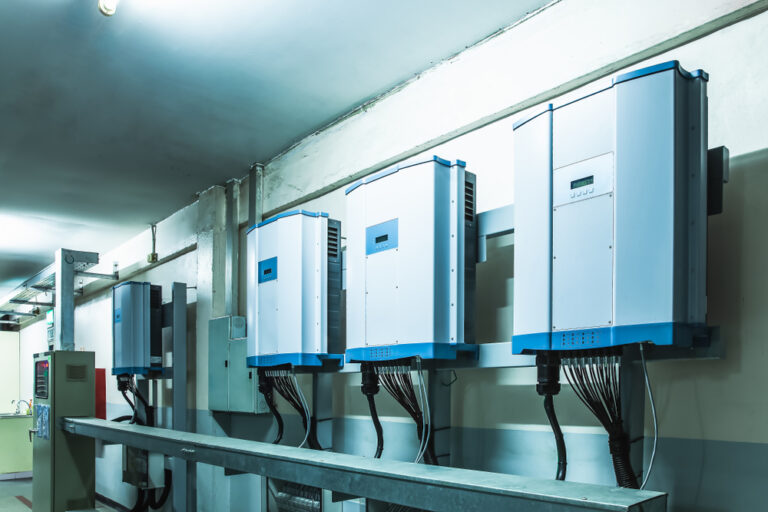Latest News
Everything You Need To Know About VAT Changes On Battery Storage

In a landmark move towards fostering sustainability and incentivising renewable energy adoption, the UK government has taken a significant step by scrapping VAT (Value Added Tax) on battery storage systems for households. This strategic decision marks a pivotal moment in the nation’s commitment to combatting climate change and transitioning towards a greener future.
The policy, which was implemented on February 1, 2024, now extends beyond the previous VAT relief policy, embracing standalone battery installations and retrofitted batteries alike. This long-awaited decision not only eliminates financial barriers but also emphasises the government’s dedication to empowering households to embrace cleaner, more sustainable energy solutions while reducing carbon emissions.
By removing financial barriers and encouraging investment in renewable energy infrastructure, the government aims to empower households to embrace cleaner, more sustainable energy solutions while reducing carbon emissions.
What Are Battery Storage Systems?
Battery storage systems, often referred to simply as battery storage, are innovative technologies designed to store electrical energy for later use. These systems play a crucial role in modern energy infrastructure, particularly in the context of renewable energy integration and grid stability.
Battery storage systems consist of rechargeable batteries that store electricity generated from various sources, such as solar panels, wind turbines, or the main electrical grid. When energy demand is low or renewable energy generation exceeds current consumption, surplus electricity can be stored in the batteries for use during periods of high demand or when renewable energy generation is insufficient.
For example, your solar panels are likely to produce more energy than you consume. A solar power battery storage system prevents this surplus from going unused. It efficiently manages electricity consumption by storing extra power and releasing it when solar panel input is unavailable.
What do the VAT changes mean when purchasing battery storage?
The UK government’s decision to scrap VAT on battery storage systems carries profound implications for the renewable energy market. It’s a significant moment for the energy storage sector and the UK’s clean energy journey. Plus, the tax relief on these technologies is in place until March 31, 2027, across the entire United Kingdom.
For consumers, this means more affordable access to battery storage solutions. With VAT no longer a financial barrier, homeowners can consider investing in battery storage systems to complement their renewable energy setup. Whether you have solar panels or plan to install them in the future, incorporating battery storage allows you to maximise energy efficiency and reduce reliance on the grid.
Why Should I Invest in Battery Storage?
Investing in battery storage offers a practical and environmentally friendly solution for homeowners seeking to reduce energy costs, enhance energy resilience, and contribute to a sustainable future. With advancing technology and government incentives, now is an opportune time to explore the benefits of battery storage for your home.
- Energy Resilience: Battery storage systems provide a reliable backup power source during outages or periods of high demand. By storing excess energy generated from renewable sources like solar panels, battery systems ensure continuous power supply, even when the grid is down.
- Cost Savings: Battery storage allows homeowners to store excess energy generated during off-peak hours and use it during peak times, reducing reliance on expensive grid electricity. This helps lower electricity bills over time and provides greater control over energy consumption.
- Maximised Renewable Energy Usage: With battery storage, homeowners can maximise the utilisation of renewable energy generated by solar panels or wind turbines. Excess energy can be stored for use during periods of low renewable energy production or high energy demand, ensuring efficient energy usage.
- Environmental Benefits: Investing in battery storage reduces reliance on fossil fuels and contributes to lower carbon emissions. By storing and utilising clean, renewable energy, homeowners play a part in mitigating climate change and promoting environmental sustainability.
- Grid Support and Stability: Battery storage systems help stabilise the grid by balancing supply and demand fluctuations. By storing excess energy during times of low demand and releasing it during peak periods, battery systems support grid stability and enhance overall energy reliability.
Explore Griff’s Solar Energy Battery Storage Solutions
Ready to embrace sustainable energy solutions for your home or business? Whether you’re seeking to reduce electricity bills, increase energy resilience, or minimise your carbon footprint, our range of battery storage options offers tailored solutions to meet your needs.
With the recent VAT changes making battery storage more accessible than ever, now is the perfect time to invest in renewable energy infrastructure. Our Battery Storage Solutions provide cutting-edge technology and expert installation services for both domestic and commercial installations.
Contact us today to learn more about our battery storage solutions and take the first step to a more sustainable future!

